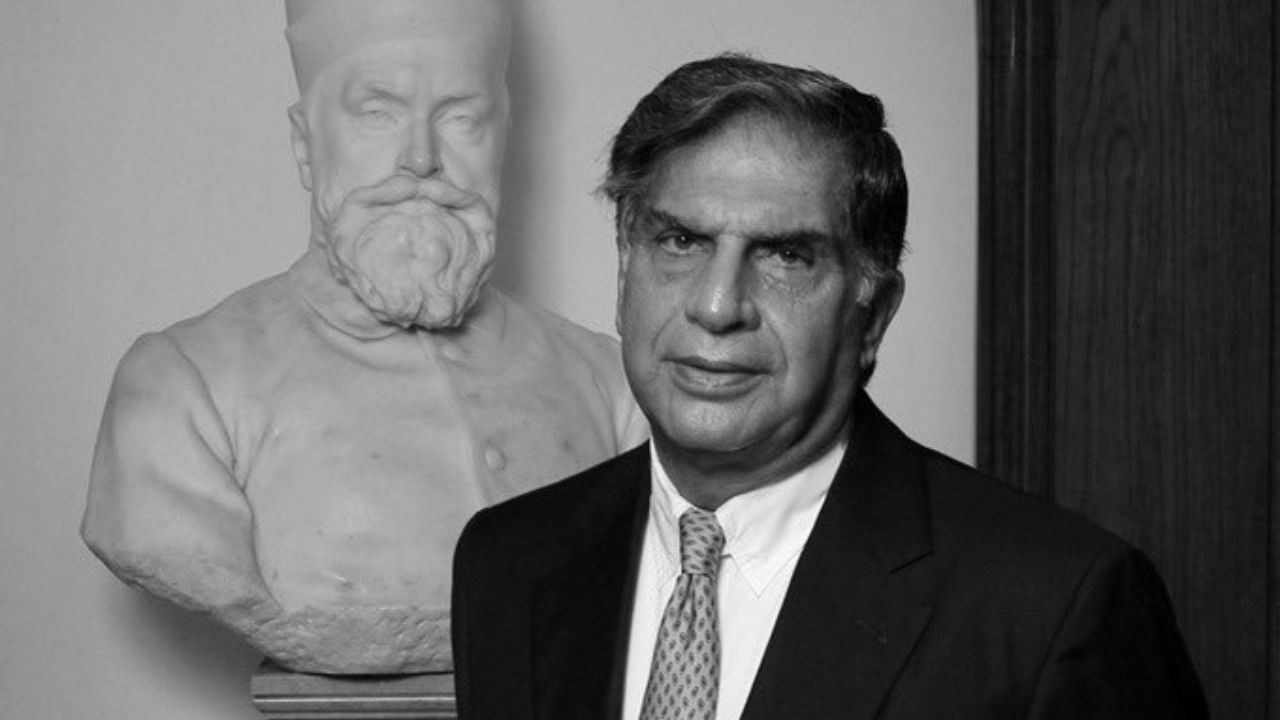Ratan Tata, the name that echoes pride and respect across India, wasn’t just an industrialist but a symbol of integrity, compassion, and vision. Born on December 28, 1937, to Sunu and Naval Tata, Ratan Tata grew up to lead the Tata Group to new heights, changing the lives of millions along the way. His journey, filled with determination and leadership, made him an irreplaceable figure in India’s business world. Let’s take a look at some key moments of his life that defined his legacy.
Early Life and Education: Laying the Foundation
Born into the prestigious Tata family, Ratan Tata received world-class education. At the age of 17, in 1955, he left for Cornell University, USA, to study architecture and engineering. His passion for learning led him to complete his degree by 1962. During this time, Tata developed the strong values of hard work, ethics, and innovation that would later shape his leadership at the Tata Group.
Joining the Tata Group: A Career of Growth and Innovation
In 1962, fresh out of college, Ratan Tata joined the Tata Group as an assistant at Tata Industries. He trained at the Jamshedpur plant of Tata Motors (then called Tata Engineering and Locomotive Company) for six months. His early years saw him gaining hands-on experience with the company’s operations and structure.
Over the next two decades, Tata held various positions, gradually rising through the ranks. He worked as a Technical Officer at Tata Steel and later became Director of National Radio and Electronics (NELCO). His leadership skills were tested when he took charge of NELCO, a failing enterprise, where he began restructuring efforts to revive the company.
Leading the Tata Group: Transformational Leadership
In 1991, after JRD Tata stepped down, Ratan Tata took over as the Chairman of Tata Sons and Tata Trusts. It was a time when the Indian economy was opening up, and Tata used this opportunity to modernize and globalize the Tata Group.
Under his leadership, the Tata Group made several high-profile international acquisitions, including Tetley (UK), Corus Steel (UK), Jaguar Land Rover (UK), and Daewoo Commercial Vehicles (South Korea). These moves marked the beginning of Tata Group’s global presence and solidified Ratan Tata’s reputation as a visionary leader.
A Leader Who Cared for the People: The Tata Nano
One of Ratan Tata’s most ambitious projects was the Tata Nano, launched in 2008. His dream was to create an affordable car for the Indian middle class, and he succeeded. The Tata Nano was priced at just over Rs 1 lakh, making it the world’s cheapest car. While it may not have been a commercial success, the project highlighted Tata’s commitment to improving the lives of ordinary Indians.
Stepping Down and Leaving a Legacy
In 2012, after 50 years of dedicated service, Ratan Tata stepped down as Chairman of Tata Sons. Even after his retirement, he continued to be a guiding force for the group as Chairman Emeritus. His leadership left behind an empire that was not just profitable but also deeply respected for its ethics and social responsibility.
Ratan Tata’s Lasting Impact
Ratan Tata was awarded the Padma Vibhushan in 2008, India’s second-highest civilian honor, recognizing his immense contributions to business and society. Throughout his life, Tata focused on philanthropic work, with major donations to education, healthcare, and rural development. He always believed that businesses should serve the people and contribute to societal growth.
Tata’s death in October 2024, at the age of 86, marks the end of an era. However, his legacy will continue to inspire future generations. His story is a reminder of how one can lead with compassion, vision, and integrity, and leave behind an unforgettable mark on the world.


